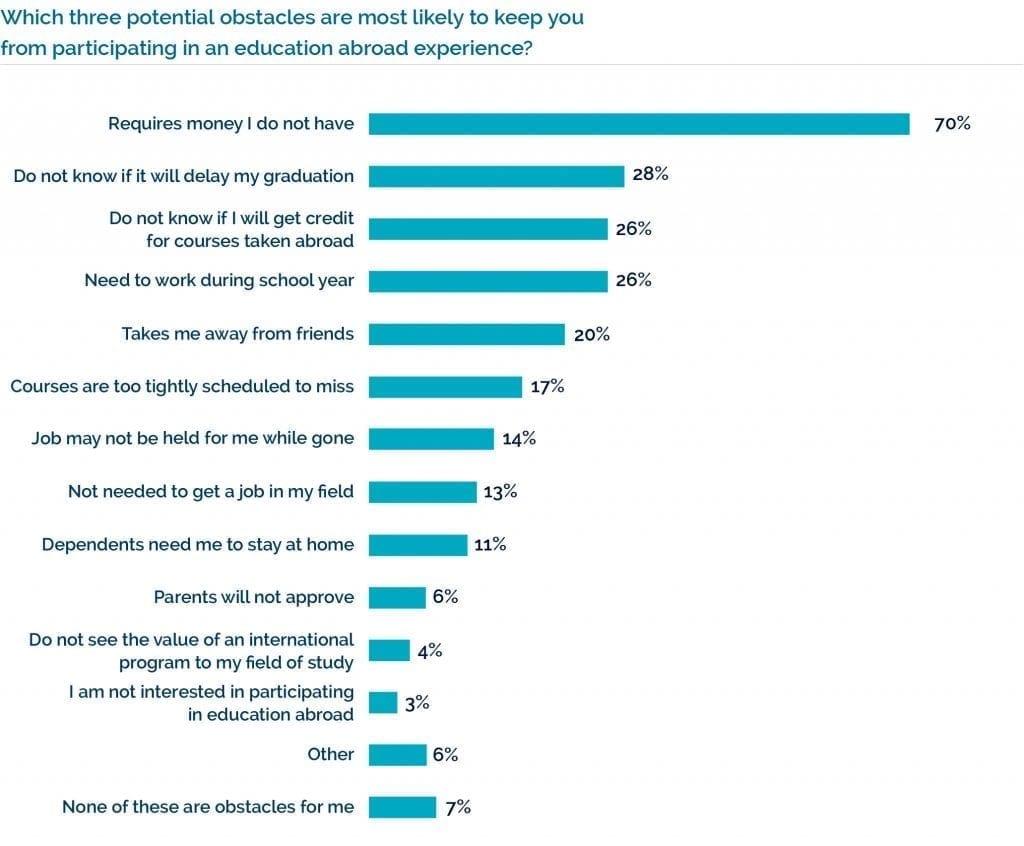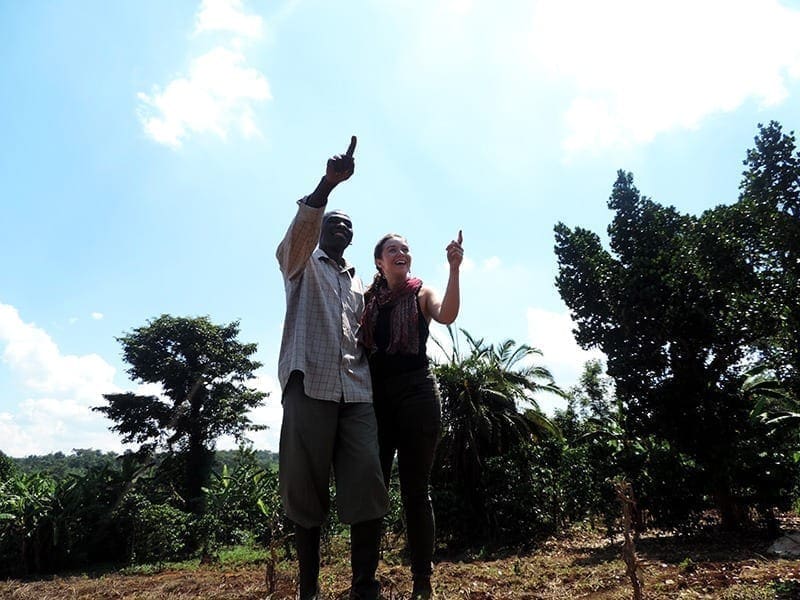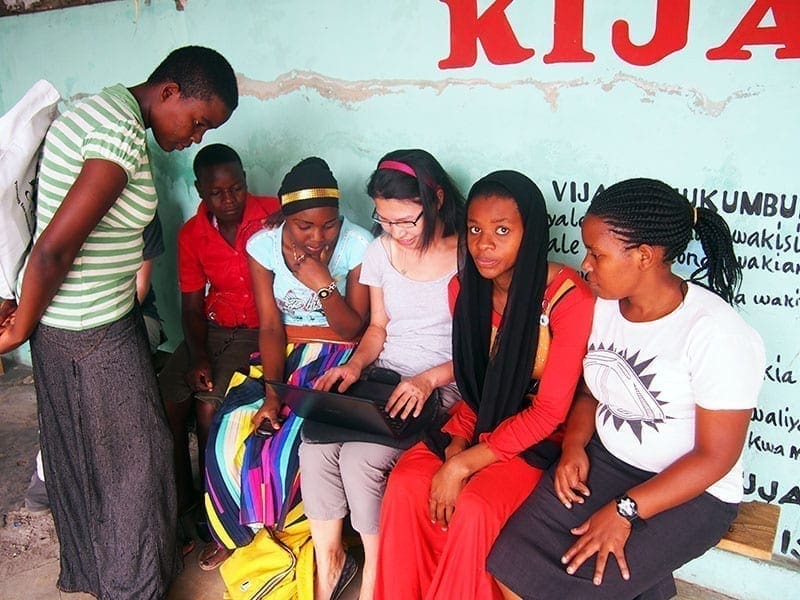Over 7,000 Canadian post-secondary students have told us about the obstacles that prevent them from learning abroad:  Canada’s institutions are working hard to remove these obstacles, but in the meantime here are some strategies that you can use to help achieve your dream of going abroad:
Canada’s institutions are working hard to remove these obstacles, but in the meantime here are some strategies that you can use to help achieve your dream of going abroad:
Obstacle #1 – I can’t afford to go abroad
Lack of funds is the number one obstacle for pursuing learning abroad. If you have an empty wallet, you may still be able to go abroad on a dime. Ask your institution about exchange opportunities so that you aren’t paying international student fees and see about available scholarships to fund your experience. Unfortunately many scholarships go unclaimed because of lack of interest and awareness.
“There was a lot of information from teachers and funding available so I felt encouraged to apply.” (Canadian education abroad alumnus to Germany)
Obstacle #2 – I may not get credit for the courses I take in another country
It’s true – a lot of programs are rigid and don’t have space for learning abroad. However, this is beginning to change across faculties. In most international exchange arrangements, your institution will recognize the credits you obtain abroad. You can also explore opportunities that take you outside of the classroom: field schools, volunteer/teach abroad experiences and international internships may prove more flexible, taking place between semesters or during study breaks. Your resume will look great, you will return with global skills and your course credits will be intact.
Obstacle #3 – I will miss my friends and family
Try these strategies to prevent homesickness:
- Schedule a regular time to Skype with your friends and family;
- Become engaged in your new environment: join a club or team and get to know your new classmates and roommates;
- Consider a destination that isn’t too far away, for a short period of time.Our research finds that students who study abroad once often go again, for a longer period, and to less familiar places. Ease in!
“I enjoyed my first experience so much, I wanted the opportunity to travel more.” (Canadian learning abroad alumnus to England and Ireland)

Obstacle #4 – I can’t leave my job
Many employers value international experience and the skills that you are able to build while abroad. Consider your budget and priorities and talk to your employer about whether it’s possible to leave your job temporarily, or continue working from overseas. You may be surprised by their flexibility. Alternatively, you may be able to find work abroad as you study to gain international experience without breaking the bank.

Obstacle #5 – I don’t require international experience to get a job in my field
Learning abroad has traditionally been seen as a natural fit for students in languages or international business. However, research now shows that these experiences can offer a competitive edge in the job market for students in all fields including Science, Technology, Engineering and Mathematics (STEM). Imagine if you could list on your resume how you participated in an international research team, or if you could reference world-class engineering projects you were involved in. Learning abroad also helps build soft-skills such as problem-solving and communication, which are important in every field.
“During my first formal study abroad experience I took a course that would not have been offered to me here in my home institution in Canada that changed my career trajectory (parasitology)… At present, much of my work is based internationally and I regularly communicate with collaborators at sites I visited during my training… those relationships are the foundation of my current work.” (Canadian learning abroad alumnus to United Kingdom, Kenya, Malawi, Colombia & Uganda) “My education abroad experience helped me get my first two jobs. It also gave me the opportunity to do internships abroad during my studies, which provided me with highly regarded experience when I started working. It helped me develop the necessary skills to move up rapidly in the organization.” (Canadian learning abroad alumnus to Mexico)
The Canadian Bureau for International Education is leading the campaign to inspire #LearningAbroad.



Comments are closed.